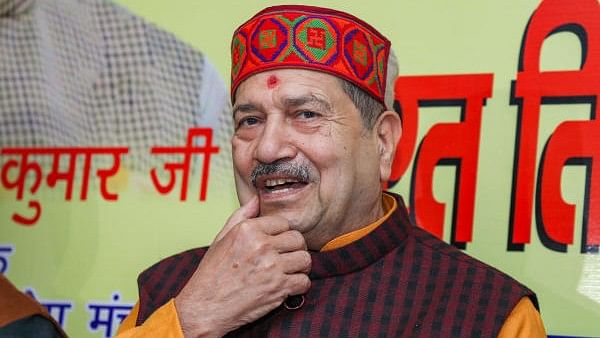
RSS member Indresh Kumar
Credit: PTI Photo
Recently, while speaking to reporters in Patna, Rashtriya Swayamsevak Sangh (RSS) leader Indresh Kumar betrayed the intolerantly majoritarian sympathies of his ilk when he tried to establish a grotesquely false equivalence between human and bovine life. In effect, he argued for the simultaneous preservation of the lives of humans and cows as a condition for social harmony.
In reply to a question on the frequent lynching of Muslims, he said, “In many parts of the country and the world, people eat meat. But we must recognise that people are sensitive about cows. So, we should strive to create an environment in which there is no ‘cow lynching’ and ‘man lynching’. We should celebrate unity in diversity in the country.” This statement has two standard Hindutva assumptions.
First, as mentioned, there is an attempt to establish an equivalence between human life and the lives of cows. This is deeply disturbing because we have heard in the past statements from vigilantes masquerading as ‘protectors of cows’ that since they revere the cow they feel at liberty not only to treasure their lives more than those of certain humans, especially those belonging to the minority communities, but to act upon these values. Thus, the recourse to lynching, on the merest of suspicions that cows will be killed. We’ve seen that in a majority of lynching incidents, the targets have been people transporting cattle.
Kumar has sought to condone the taking of human life to validate a particular set of religious beliefs, if not sought to stoke passions further, by introducing into the Hindutva conceptual vocabulary the phrase ‘cow lynching’. There is, clearly, no such thing. Cow slaughter is banned in most states with varying penalties prescribed, while it is legal in a handful of jurisdictions. Whatever the legal position, there is no such thing as ‘cow lynching’.
Kumar has obviously used the same word in respect of the slaughter of an animal and the murder of a human to try and establish a similitude. But we can reasonably surmise that Kumar did not really mean that in legal terms a human life and bovine life have the same value. He couldn’t possibly be that ignorant.
What he is trying to say, it appears, is that the Hindu majority has the right to determine the terms of the discourse and that the minorities are powerless to resist it. They must accept that their lives carry an inferior value and are dependent for their security on following the rules made for them by the Hindu Right. For, let us never make the erroneous assumption that the Hindutva peddlers speak for every member of the majority community. The Hindutva Right has fascistic hues, and in societal terms speaks for a lunatic fringe.
The second point that Kumar made was about ‘unity in diversity’, an idea that was positively freighted in a certain project of nation-building, but has been reduced to a shibboleth. In this case, Kumar was merely trying to bolster his case for majoritarianism by pulling a non sequitur out of his hat. Diversity is not envisaged in any way. If the Hindutva peddlers had been tolerant of diversity, they would not have insisted that everyone would have to live their lives pandering to the susceptibilities of the majority.
We see the imprint of intolerance in everything that the Sangh parivar tries to force on everyone, including nominal Hindus who do not consider themselves bound by the strictures of fundamentalist tenets. Thus, it tries to pre-empt dietary choice, sartorial discretion, interfaith marriages, and, most recently, the right of Muslims to run vegetarian restaurants bearing ‘Hindu’ names.
One would have thought that ‘responsible’ leaders and ideologues would have paused the murder by cow vigilantes of a 19-year-old student in Faridabad. Late on August 23, he had been going for a late meal to a dhaba and was chased for 25 km by a bunch of criminals before being shot on the suspicion that the car he and his friends were travelling in was being used to transport cows. This kind of summary action has unfortunately become all too common. On August 27, a West Bengal migrant was beaten to death, suspected of cooking and eating beef.
It is necessary to respect diversity, and certainly send out the message that people cannot arrogate to themselves the role of administering justice. Instead, we find extremists continue to indulge in the kind of dog whistling that encourages malcontents to become a law unto themselves. That innocents are killed doesn’t seem to matter.
(Suhit K Sen is author of ‘The Paradox of Populism: The Indira Gandhi Years, 1966-1977’.)
Disclaimer: The views expressed above are the author's own. They do not necessarily reflect the views of DH.